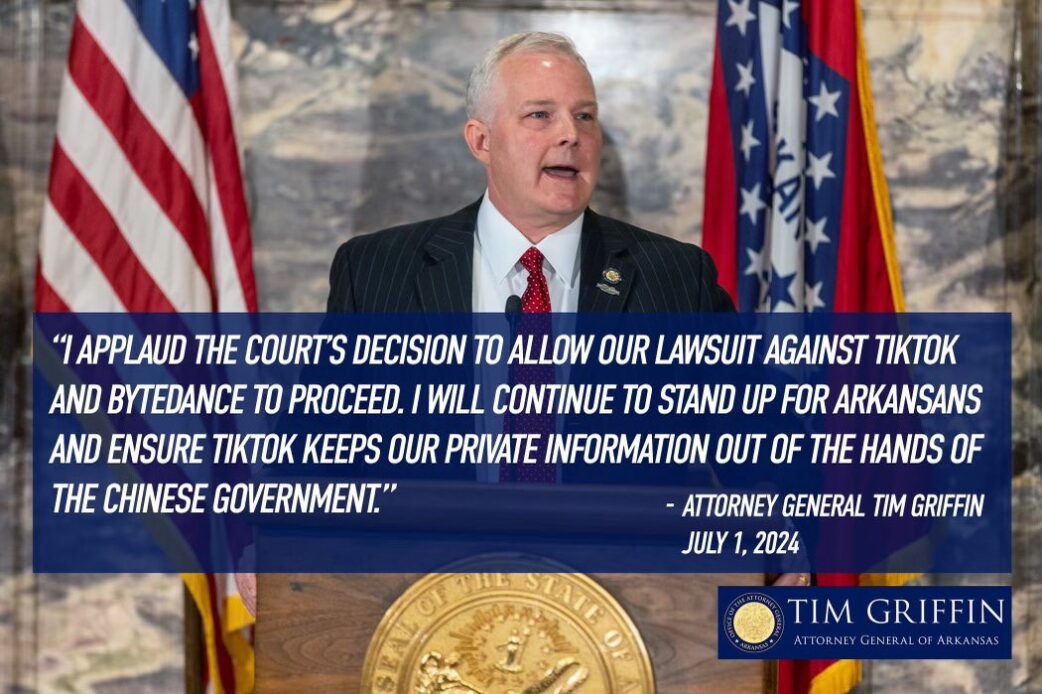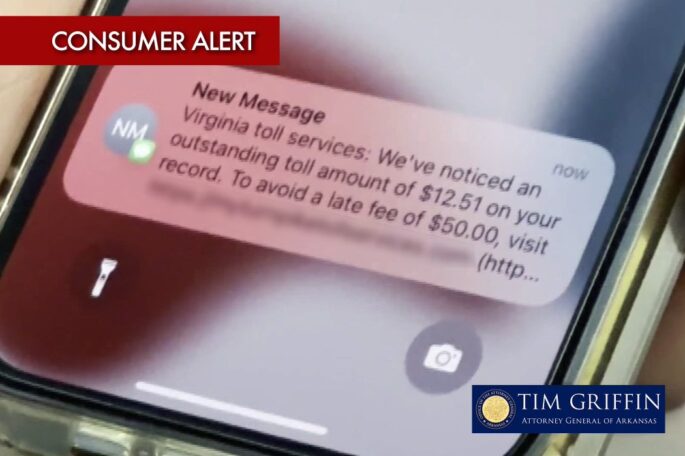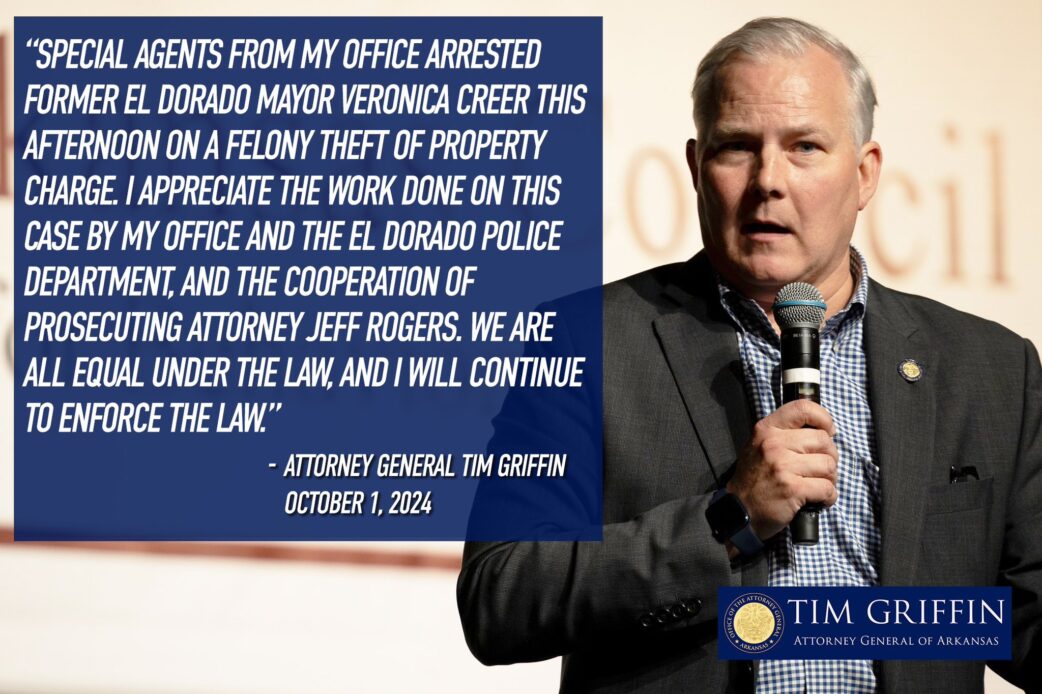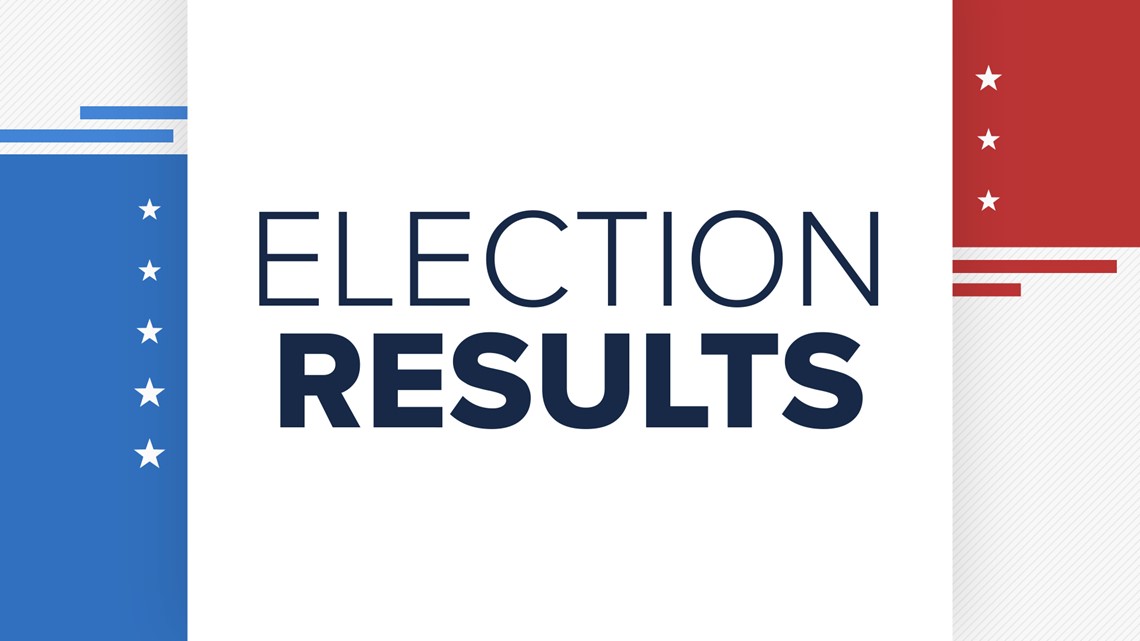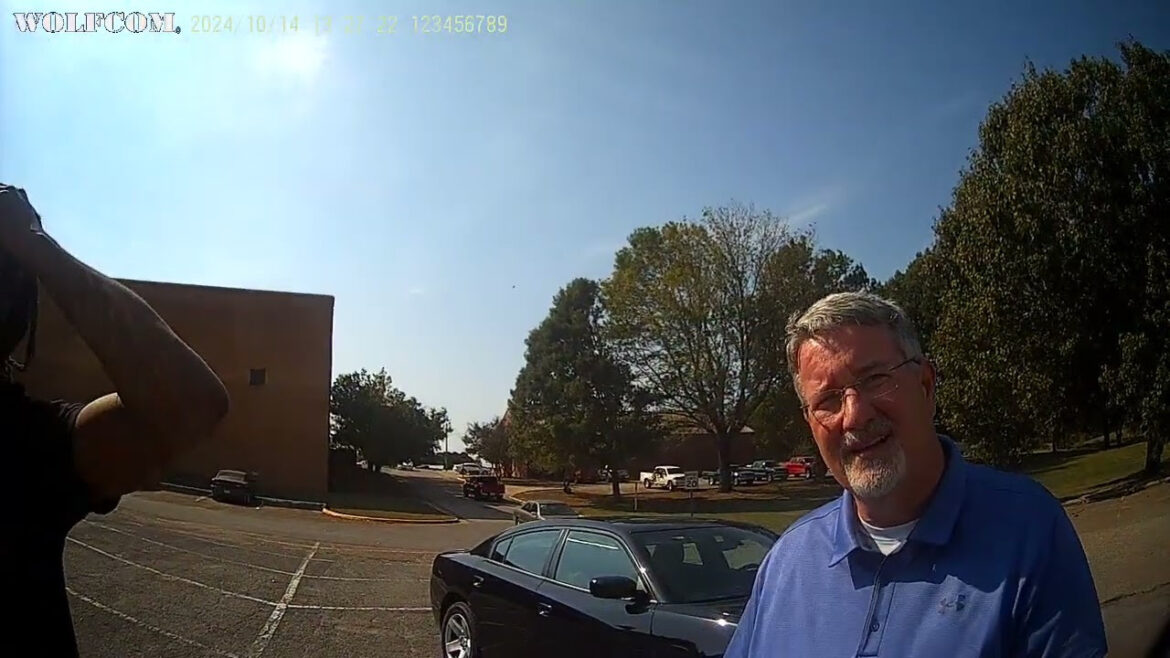
Griffin: ‘[P]reying on the trust Arkansans have in the law enforcement community is especially heinous’

LITTLE ROCK – Attorney General Tim Griffin issued the following statement warning Arkansans about a common scam in which callers claim to be a law enforcement officer and demand payment to resolve an alleged criminal matter:
“I have received reports of an uptick in fraudulent phone calls to Arkansans involving scammers representing themselves as law enforcement officers. These unscrupulous individuals, whether live or in a pre-recorded message, employ common tactics: They claim that the person they have called has committed a criminal offense and pressure them into paying money under threat of being arrested. Or they offer a recently arrested individual the opportunity to enroll in a fake rehabilitation program.
“Any attempt to defraud consumers is disgusting, but preying on the trust Arkansans have in the law enforcement community is especially heinous. I encourage anyone who receives this type of call not to fall for the scam, hang up on the scammer, and report them to my office for investigation.”
Griffin calls:
advises consumers to follow these tips to help protect themselves against such fraudulent
- Law enforcement agencies and their employees do not call asking people to send money for fees or fines using a wire transfer, a prepaid debit card or gift card.
- Bitcoin is never a legitimate form of payment.
- Don’t assume the caller is who you think it is, even if the Caller ID indicates it is
Arkansas State Police or your local police department. Verify the caller’s validity by independently calling the listed number for the agency they represent and asking for that individual. - If asked to meet, only go to the designated police station, and only agree to meet INSIDE the station.
- Do not give any personal information—Social Security number, bank information, driver’s license number, etc.—over the phone.
Scammers blast illegal robocalls to consumers using identical or nearly identical messaging and calling patterns. They use caller ID spoofing to mislead and defraud victims, use pre-recorded messages without prior consent of call recipients, and target phone numbers on the National Do Not Call Registry violating federal and state consumer protection laws.
Griffin invites consumers to go beyond merely reporting that a call is unwanted and provide information that can assist in identifying the entity that is perpetrating the fraudulent and ongoing calling activity, including the following: date, time of the call(s), calling number(s), and message or description of the call(s). A form to report this information is available on our website.
For more information or to file a Consumer Complaint, please contact the Office of Attorney General at (501) 682-2007 or oag@arkansasag.gov, or visit the website www.ArkansasAG.gov.
To download a PDF copy of this consumer alert, click here.






